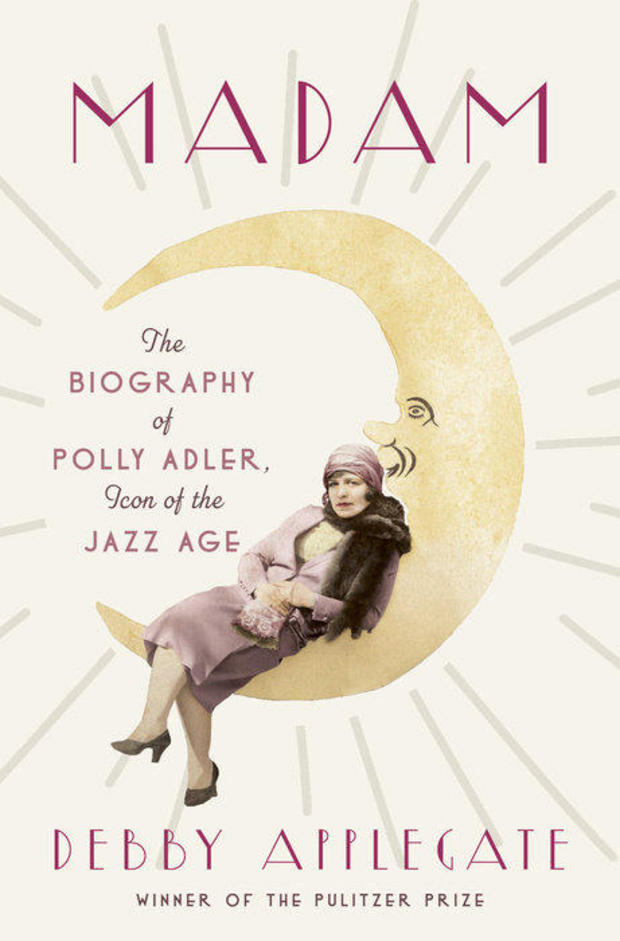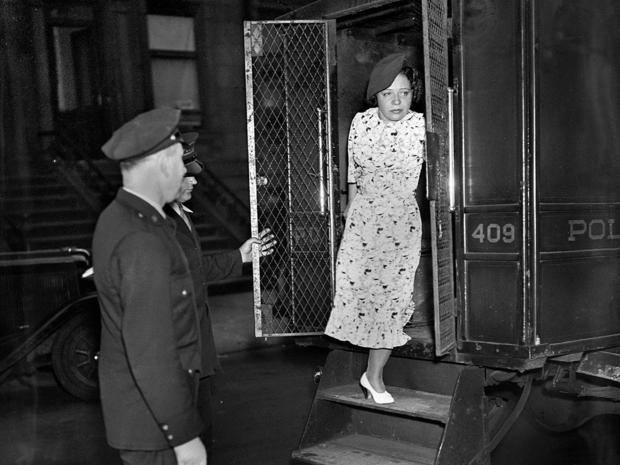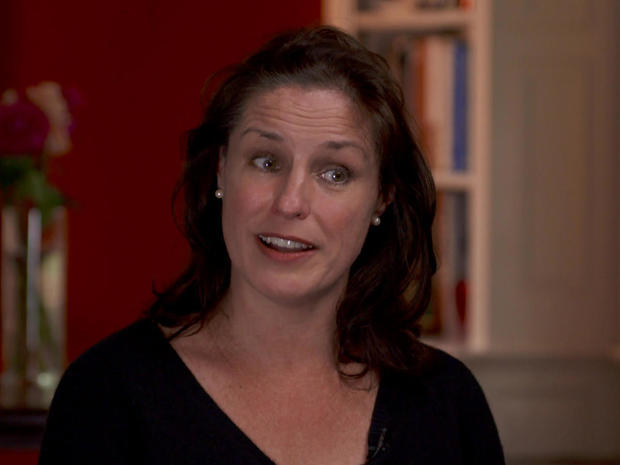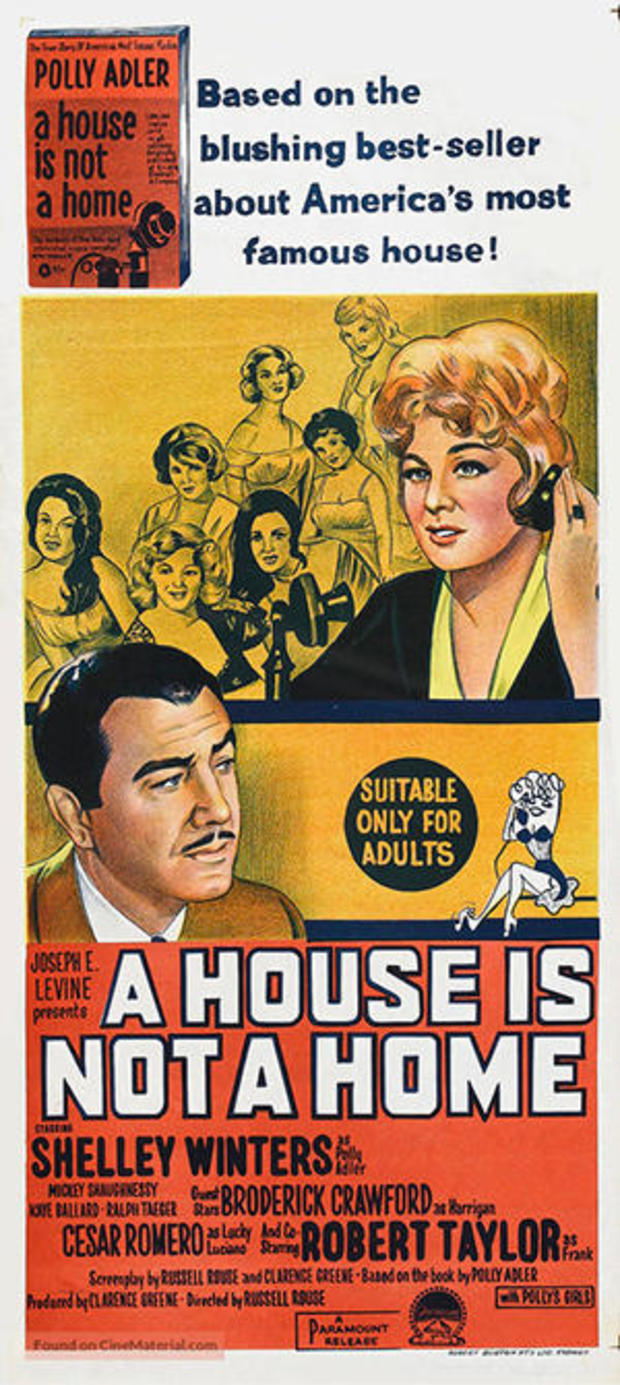"Madam": How the oldest profession entered the Jazz Age
During the Roaring '20s, F. Scott Fitzgerald said, the word "jazz" went from first meaning sex, to then dancing, and then music. You could get all three at New York madam Polly Adler's, where sex, dancing and music was also the order of priorities for her patrons.
Adler is the subject of "Madam," by Pulitzer Prize-winning author Debby Applegate – a biography that is also a story of America bursting into the modern age, with new roles for women, new rules for couples, and parties that flowed into rooms down the hall.
Adler arrived from Russia at age 13, and got her American start in a sweatshop, factories that were, Applegate said, "usually rather dark places. And one of the things she quickly realizes is, she has no control over the rest of her life. But she has control over her free time. So, she starts going to the dance halls."
She also to Coney Island, which she adores: "Coney Island definitely teaches people the idea that you can just meet strangers, the boy will pay for your hot dog, pay for your amusement ride, pay for the dance hall. But the expectation was that there would be at least some sort of romantic prospects, and sometimes a lot more," Applegate said.
On one such Coney Island date, Adler said she was raped by the foreman at her factory. Traumatized and later pushed out of her cousin's home where she had been living, Adler makes a choice: "There's really one way that people enter the sex trades, and that is when you look at how much money you can make compared to your current situation. It starts to look like a sign of self-respect, that I'm going to take care of myself."
CBS News' John Dickerson asked, "And Polly said, 'I could hardly have picked a better age in which to be a madam'?"
"She enters the sex trade just as Prohibition is getting started," Applegate replied. "Prohibition is one of the greatest examples of unintended consequences in American history. So, all of a sudden you get rid of the saloons, but now you have secret speakeasies."
"And you write that even if you just wanted to get a beer, you had to suddenly rub elbows with somebody who was a criminal?"
"And that seems glamorous, all of a sudden! You would never have spent time next to a gunman or a con man. But now, all of a sudden, you're sitting next to Lucky Luciano, and he's the guy providing the booze."
The broader culture changed. It was the bees' knees for flappers with their jelly beans on their arms to get sozzled from jag juice at parties, which made it a short moral leap to Polly's (if you had the money).
Applegate said, "The difference between Polly and most of her peers was that she was young, hip, fresh. She was of the generation."
"So, she updated the oldest profession in the world to the Jazz Age?"
"That's right. One of her first big moves to try to broaden her reputation was to go to the nightclubs with a full bevy of her prettiest girls in tow. And they would go from nightclub to nightclub as a sort of billboard."
She even had her own business card. And just who was calling? Between her run from 1920 to just after World War II, her clients, Applegate said, included comedians like the Marx Brothers, well-known band leaders ("The best documented of all her famous clients was Desi Arnaz"), sports figures ("One of her more famous clients was Joe DiMaggio, who by all rumor did not like her satin sheets because his knees kept slipping. So, she sent out for plain cotton sheets for Joltin' Joe"), and crooners like Ol' Blue Eyes himself.
Applegate said, "Frank Sinatra was a well-known womanizer, a well-known user of prostitutes."
At Polly's you could find the writers who built the New Yorker, tycoons, and lots of politicians, often doing deals with the gangsters."
"One of the most famous New York politicians ever was FDR," Dickerson said. "And Polly claimed that FDR was a client?"
"That was a real shock to me. I will say upfront that I was never able to prove that. I found circumstantial evidence to suggest that that was perfectly possible and maybe even likely."
"There was this code that allowed men of that class to have these relationships under wraps. So, it's not implausible?" Dickerson asked.
"Roosevelt was well known for loving stag parties."
"And as you point out, stag parties at the time, they didn't just play pinocle?"
"Exactly."
"If that information had gotten out, he might not have been president?"
"I think, well, quite likely," Applegate said. "I mean, I think almost certainly."
But Polly didn't parrot what she heard or saw. And for the most part she knew how to pay off the right people, though on occasion the vice cops would drag her to the women's courthouse anyway.
Dickerson asked, "So, at her height, how many people did she have on the take? How many people was she having to pay off?"
"She could never even say how much. There were thousands and thousands of dollars every month. No doubt about it, she would say as much as maybe $50,000 a year in a bad year. … That is the cost of 'overhead,' on top of everything else. Top of the condoms, the towels, the laundry."
Adler was said to have quipped, "It was a business doing pleasure with you," which makes it sound like everything in her life was jake. It wasn't. Her gangster pals filled the morgues; her girls were commodities.
Dickerson asked, "Do we forget the dangers in romanticizing the Jazz Age?"
"That tension between glamorizing the Jazz Age and trying to describe its underbelly in realistic ways was something I felt the whole time," Applegate said. "It is glamorous. It is fun. But the underside was just constantly there in a way that it's easy to forget if you're watching the old movies."
One of those old movies, "A House Is Not a Home," was based on Adler's autobiography, which she wrote from retirement in Los Angeles in 1952.
The book was a smash success. The 1964 movie, released two years after Adler's death, was not. It made the woman once called New York's "Empress of Crime" look like a den mother. The silver screen couldn't come close to the real thing.
Dickerson asked, "Is her story an American story?"
"Oh, very much," Applegate replied. "I mean, she herself says, 'I'm a classic American success story, from $5 a week to my first fur coat to my Park Avenue apartment to worldwide fame.'
"It's not necessarily the best American success story, but it's certainly not out of the mainstream."
READ AN EXCERPT: "Madam" by Debby Applegate
For more info:
- "Madam: The Biography of Polly Adler, Icon of the Jazz Age" by Debby Applegate (Doubleday), available in Hardcover, eBook and Audio formats via Amazon and Indiebound
Story produced by David Rothman. Editor: Jason Schmidt.









